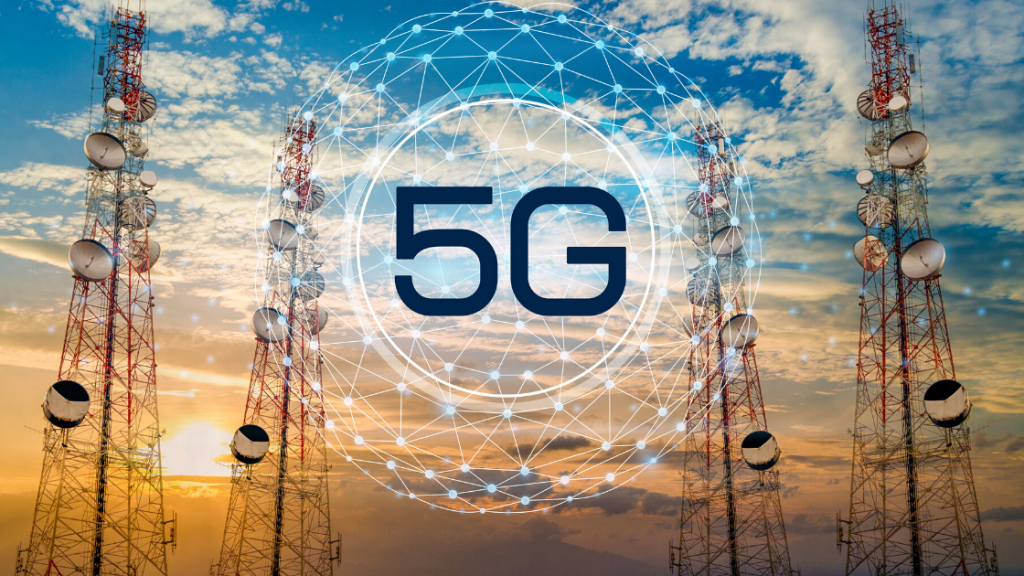Editor’s Note: CPA member Steve Papa explains Parallel Wireless’s strategy for 5G. His goal is to destroy Huawei by building and deploying the world’s best 5G networks.
The global race for 5G leadership is especially important because, apart from all the associated job creation and economic growth from 5G business offshoots, our national defense relies on having the most advanced communications semiconductors — chips. Space Force, Electronics Warfare, Fighter jet AESA radar, Drones, Hypersonic weapons, and GPS resilience require the most advanced communications chips to sustain our global superiority. 5G has 30 times more chip volume than 4G. The winner of the 5G race will have the big R&D budget to lead the world with cutting edge communications chips. The loser will beg for access. If current trends continue China will win. That will be devastating for America and our allies.
[Steve Papa | March 13, 2020 | RCP]
Our company, Parallel Wireless, is building wireless networks in direct competition with Chinese network vendors. Our goal is to beat Huawei. We build 2G, 3G, 4G, and 5G networks. The biggest opportunity for beating Huawei is radio. The radio you see on cell towers is what makes wireless…wireless! These radios are engineering marvels with technological roots in advanced military communications and radar systems, and will soon be even more advanced than our current defense arsenal. Huawei’s leading development of chips is giving them a sustainable and growing technology lead over the rest of the world in 5G radios. Though Huawei may have stolen 2G and 3G technology, they deserve credit for their innovations in 5G.
There has been a lot of discussion around 5G applications and new technologies such as ORAN and virtualized 5G networks. We agree and since our founding in 2012 have been building the foundation for the world’s only integrated 2G, 3G, 4G, 5G ORAN solution. To unlock the power of an All-G ORAN software solution and build the best networks for our customers, we need the best radios whether from independent radio companies, Ericsson, or Nokia. Operating millions of radios is also where most of the cost comes from. Operators like AT&T will eventually spend many billions of dollars a year running a 5G network, tens of billions on electricity and tens of billions to reinforce steel on towers to handle heavier 5G radios. Thus, the radio is where the global 5G technology battle will be won or lost. And it’s the chips in the radio that will ultimately determine the outcome.
The Communist Party of China has invested hundreds of billions in chip research, development, and production as part of the Made in China 2025 strategic plan. Huawei’s lead in 5G radios and advanced handset chips show that China is becoming self-sufficient in chips.
The Western World lost the spirit of innovation in 5G radio and instead myopically focused on Wall Street. As recently as December, Ericsson was fined $1 billion after the U.S. Department of Justice uncovered years of illicit customer bribes. Meanwhile, Nokia spent the past decade ceding its position as the world’s leading cellphone maker to Apple and Samsung, selling its cellphone business to Microsoft for $7.6 billion, and using the money to acquire struggling and mostly duplicative businesses from Alcatel, Lucent, Motorola, and Siemens, slash R&D spending, and dismantle Bell Labs – America’s historic lab for innovation.
China may be doping their technology athletes with billions in computer chip investments, but the western response is a playbook for mediocrity and hardly a worthy challenge to China’s Huawei.
Parallel Wireless and other American companies can win this battle only if we have access to the best radio chips. The U.S. should take the $1 billion Ericsson fine and use it to advance American wireless chip innovation. By accelerating the R&D investment of emerging 5G chip innovators in the USA, including not just our company but its competitors, America can win. Just as Nokia lost its crown to Apple and Android, Huawei can lose its 5G crown to American innovators. I’ve spent my career commercializing advanced technologies, including chips. It is clear to me that we are not doing enough. We have no time to waste with China tilting the playing field for Huawei.
A Western alternative to Huawei is not enough. The pace of 5G deployment in the U.S. is not the point. Let’s tackle the real threat — the danger of Chinese leadership in radio chips and related technologies. In discussions with policymakers, all agree on the need to invest R&D in 5G. Let’s concentrate this spending American chip innovation, so that American technology will again surpass China’s.
Steve Papa is CEO of Parallel Wireless where he is building 2G-3G-4G-5G virtualized ORAN networks around the world. He is a serial entrepreneur and Founder/Venture Capitalist of companies across many different technologies that have created more than 5,000 jobs in America.
Read the original article here.













